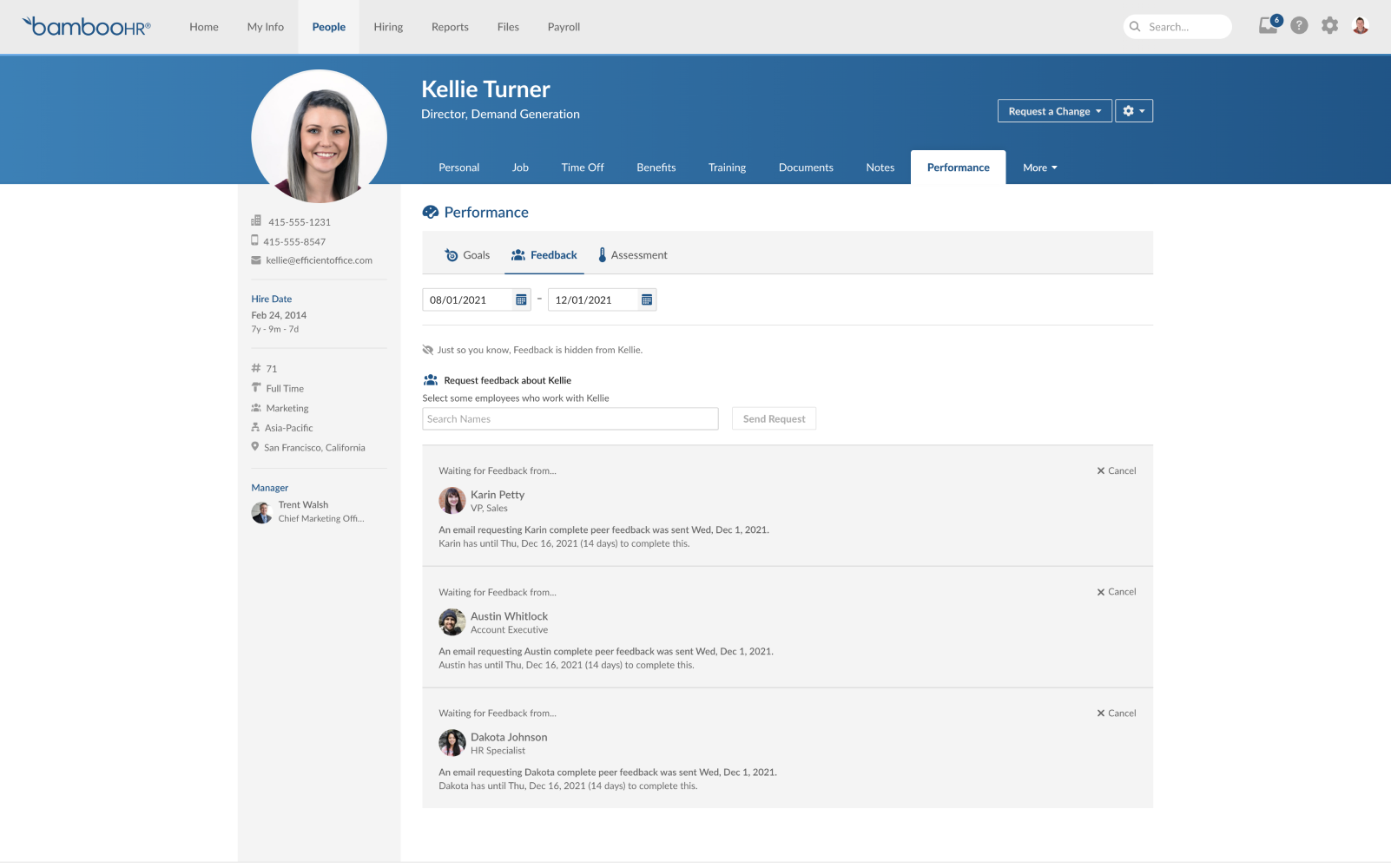Performance Appraisal in a New-gen HR Organization
Making Performance Appraisal Simple and More Rewarding using HR Technology Tools and Analytics
Performance appraisal is a widely discussed concept in any organization that focuses on employee productivity and performance. HR managers use a variety of methods and tools in their appraisal systems to measure employee effort and commitments. Improvement of employee productivity is the ultimate goal of having a formal structure in performance appraisal systems. It effectively showcases how well the hiring managers and retainers have been able to do a commendable job during the different stages of recruitment, on-boarding, retention and in-team employee management. A good performance appraisal system ensures smooth functioning of all departments and teams, particularly in high attrition industries where the average tenure of an employee or worker is less than 18-24 months.
In this article we point out to the best practices in performance appraisal for new-generation HR teams and organizations.
Definition of Performance Appraisal
Performance appraisal is a formal technique used to measure the effectiveness and impact of an employee’s performance, and productivity on an organization’s current results. It could include the employee’s intellectual thoughts, pro-activeness, behavior at workplace and problem-solving abilities. But, in the last 10-12 years, performance appraisal methods have changed completely in accordance with the requirements of the evolving workplaces. Most experts at leading HR organizations reveal that the concept of performance appraisal has transformed recently.
So, let us define performance appraisal, first.
Performance appraisal is an unbiased rating system of an employee’s efforts in the present role and functions and the degree of completeness of tasks and projects assigned. It is often considered to be a systematic and routine sub-function of staffing but could become non-systematic too based on the size and span of the organization.
Gomej-Mejia stated – “Performance Appraisal involves the identification, measurement and management of human performance in organization.”
According to Slabbert and Swanepoel – “Performance appraisal is a formal and systematic process by means of which the relevant strengths and weaknesses of the employees are identified, measured, recorded and developed.”
Recommended: 15 Benefits of Using an Employee Performance Management Software
According to Beach – “Performance appraisal evaluates systematically performance of individual with regard to his or her performance on the job and his potential for development.”
People have started to realize that consistency of performance is of utmost importance, rather than a target based approach. Behavioral perceptions have changed till the last extent, and over the period of time, attitude remains to be a prime indicator of work-place performance.
Performance Appraisal: A Theoretical Framework
Going by the theoretical outlook, performance appraisals are understood as regular reviews of employees to measure meaningful contributions being done by them within the limited scope. At the same time, performance reviews help the managers to understand employee skills, to achieve targets as laid down. This, in turn. helps the managers to make plans for employees’ career growth in relation to the growth of the organization.
Performance appraisals: The Outlook of HR Focused Organizations
Performance appraisals remain to be held annually although in certain organizations, it is done quarterly or bi-annually. A major objective remains to be designing holistic feedback about how an employee contributes within the workplace. In professional organizations, performance appraisals are considered to be important tools to measure human contributions being made. A changing paradigm is marked in some of the HR organizations, wherein human development is invested upon post the normal process of appraisals being conducted.
But, what are the development initiatives being taken in the HR organizations especially post appraisals? More often than not, HR organizations lean on training inputs as an integral part of knowledge management and personality development. It remains to be obvious that, with each evaluation being made, employees are rewarded in a way that increases the scope for better performance within a given framework.
How Performance Appraisals Work: Few Basics
The most important aspect of performance appraisal is to help the organization in managing funds. Therefore, performance appraisals help in doing a critical review of employee performance, before lending an employee feedback. A majority of the HR experts state that, performance appraisals happen to be a routine activity in most of the organizations, wherein discrepancies of performance is measured. In HR focused organization, performance appraisals are well documented to revise targets related to individual performances.
Identifying skill gaps remains to be an important activity, while performance appraisal in people focused organizations lean on a ‘managed feedback’ approach to reduce the stress levels of the employees concerned.
Do HR focused organizations emphasize more on self-assessments?
A pertinent question, many of the business consultants’ reveal that people focused organizations emphasize on self-assessments rather than a routine performance appraisal framework.
At the same time, taking the instance of people focused organizations, we understand that peer assessments are also encouraged in order to ignite healthy competition in the workplace. In certain cases, negotiated appraisals are encouraged, wherein mediators are appointed to speak to the performing employees. However, an approach towards criticism is observed in many of the professional businesses, as performance appraisals take into consideration the gap related to employee performance, related to a broader framework.
But, what should be the actual focus of appraisals? Business experts and CEOs have observed that, people focused organizations take performance appraisals seriously, and this leads towards a better goal adherence. In most of the people focused organizations, performance appraisals happen in continuity, while managers are more of mentors in playing the lead role. In the given context, performance appraisals are redefined on various factors like attitudinal approach, knowledge and domain expertise, flexible mindset, interpersonal relationships etc. Experts do agree that a continuous process of mapping a candidate’s suitability of presence really helps in creating the ‘cultural fit’.
Using HR Technology Tools and Analytics for Performance Appraisal Management
In most organizations, performance appraisal and reviews for promotions happen only once a year. This annual review system requires a holistic coverage of all of employee’s achievements, failures, and out of box ideas. This can be a highly biased workflow for employees who are often over-shadowed by the high-fliers and trailblazers in the teams. Therefore, it is important to leverage modern day technologies such as AI, analytics and data visualization to limit the scope of biases, subjectivity and ambiguity in the performance appraisal systems. We reviewed 10 platforms specifically built to simplify this task for HR managers and staff managers.
Let’s discuss these tools.
BambooHR
BambooHR makes performance review look like a cakewalk with its next-gen employee experience platform. It simplifies tough HR tasks with its streamlined workflow and reporting. The analytics and interactive dashboard reporting are made for HR managers who like to set up reviews in a personalized manner. It provides integration with all the major HR SaaS tools and platforms, including for payroll and compensation management suites.

Overall, BambooHR helps to build a great workplace for SMBs and remote teams that are looking to grow at a phenomenal pace in the era of AI, and automation.
Akrivia HCM
Akrivia HCM is a powerful performance management platform designed to identify, train and retain top-performing employees in an organization. It starts rating an employee from Day 1 to the last second of performance review interviews, which means, managers have a 360-degree feedback system in front of them for performance review.

If you are looking to build a culture within teams and departments without getting laser-focused on micro-management, this tool is a great solution.
PeopleHum
HR managers can use PeopleHum to generate AI-based analytics on how the employees are working and coordinating with cross-functional teams. The tool enables HR teams to design their performance review systems using DIY templates. These templates are built for cases involving self, leadership and 1:1 reviews.

Listening to analytics from PeopleHum speeds up the review cycle by orchestrating personalized conversations across various employee touchpoints.
Peoplebox
Peoplebox is a reliable HR tech platform for people management. It delivers a high-performance review system workflow for HR teams and workers who can see how their top performers do over a week, month and quarter against average performers and laggards. This reporting allows a staff manager to prep up in advance for review meetings in a seamless manner. The conversational style of dashboard reporting enables the HR team to design a TLD program based on OKRs, coaching and reviews.
How can a 360-Degree Appraisal help?
In people focused organizations, managers emphasize on the 360 degree appraisal formats as it takes into consideration the much needed ‘peer assessment framework’. On the other hand, a majority of HR managers agree that this leads towards a healthy competition in the workplace.
Conclusion
Over the period of years, the concept of performance appraisal had changed. In people focused organizations, performance appraisal post the pandemic has been a continuous process and employees are treated more as humans who could make positive contributions igniting business growth. More of a 360 degree process, performance appraisals have been redefined in HR organizations to augment sincere contributions on a sustainable framework.

